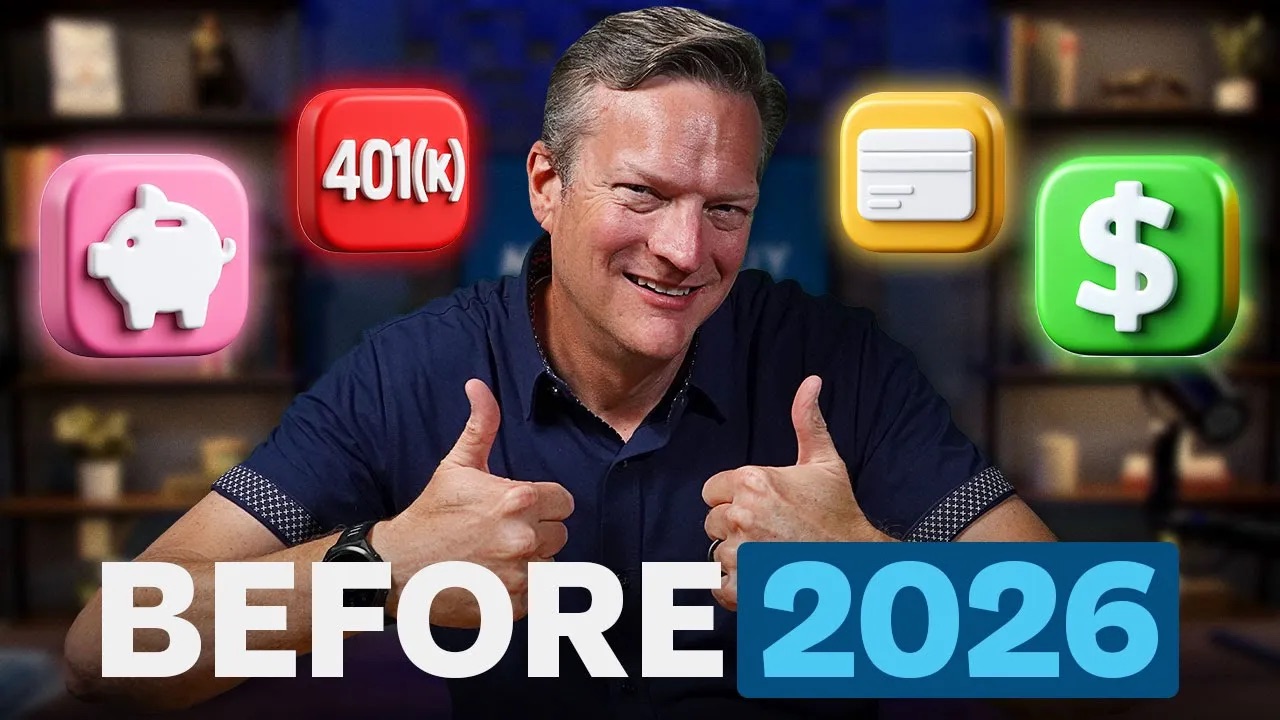Next question is from CHG. With a mortgage interest rate at seven percent, does it now make sense to pay off the home faster if I'm still saving 25 percent, or should we continue pushing the savings up?
Man, alright, so here's what's interesting: we love our rules, we love the framework that we've built. It's like our baby, and it's there for a reason. There are some tried and true ideas behind it. But man, the government keeps trying to mess with us. We just talked about high-interest debt and low-interest debt, and forever mortgages were low-interest debt. You get a mortgage at two and a half, three, three and a half, that's low. More than ever now, we're seeing like six and a half, seven. It starts to get kind of high. And so this is what CHG said: "My mortgage is seven percent. Should I start prioritizing it?" Right, that's the question. Is it now high interest? Well, here's what I love that CHG said: "Should I start paying it off more quickly if I'm saving 25 percent for the future?" And if you are saving 25 percent of your gross income for the future, what you have done is you have bought yourself freedom.
Here's what I mean by that: you have bought the freedom at that stage to now make financial decisions based on preference, not based on necessity. So if you're saving 25 percent of your gross income, and you know your number, right? We have a tool that can help you with that. Learn.moneyguy.com, if you need to know your number. If you know your number and you know that 25 percent will put you on the path to get to that number, then you get to choose what you do above and beyond. You want to pay off that mortgage? Great. You want to knock out all of your debt? Great. You want to save for future expenses like college, or a wedding, or helping kids with a down payment? Fantastic. Once you hit that 25 percent, you get to choose what you want to do. Now, if CHG is asking the optimization question, well, now it depends, right? Seven percent for one person may be high interest. Seven percent for another person may not be so high interest. If I've got a seven percent mortgage and I'm someone who's in my twenties, and maybe I'm one of these crazy twenty-year-olds who has a really high income, and I have the ability to save a lot of money, and I'm hitting my 25 percent, and I say, "You know what? I could go satisfy that seven percent. I could go pay that off, and that would be fine. I'd be imputing to myself a seven percent rate of return." Or I think, realistically, if I go invest in a pretty aggressive, diversified but equity-heavy portfolio, I think in my world I can earn eight percent, nine percent, ten percent, eleven percent annualized over the next 10, 15, 20, 30, 40 years. Then maybe there's an arbitrage there. I think I can invest those dollars and, realistically, if I'm in my twenties, sometime before the next 30 years, I think rates are going to drop, and I'll probably just refi. If I had that seven percent, I'll go refi when it's at five percent, and I'll build that up.
That seems perfectly plausible to me. If, however, you're someone who's in your 50s and now you're thinking about retirement, and you can see the landing strip, and your landing gear is down, you may say, "Man, seven percent is pretty high. I need to figure out how to get out of this mortgage debt. I've got 15 years. I've got to knock it out. I want to go into retirement debt-free, and I've got a portfolio that can sustain that." Well, then yeah, maybe it's okay to begin paying off that mortgage. The optimization question depends on your unique circumstances. What I love about CHG is they said, "I'm saving 25 percent." And once you're doing that, you don't have to do anything. You get to do what you want to do with your dollars, and that's a powerful position to be in. That was a really good answer. And if you're figuring out where you fall on that spectrum of the two scenarios you just gave, we have a
Wealth Multiplier free download at
moneyguy.com/resources, and it can tell you what your dollar that you're investing today at your age can turn into by the time you're in retirement. And that might help you start thinking through that decision if you are in that position and have the freedom to choose. So, I would highly suggest you head over to
moneyguy.com/resources and check that out because that would be really helpful. For more information, check out our
free resources here.













